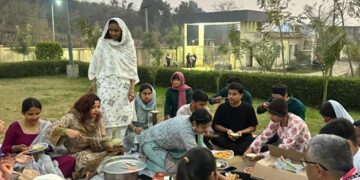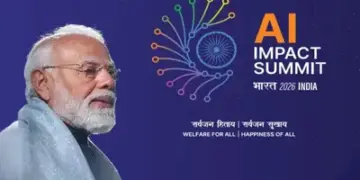Have you ever visited a food processing industry? If not, then you should know that the amount of water required to manage, dispense, segregate, dissolve, produce, pack, and transport raw materials into useful products is humongous. At each step, inclusion of water is essential. To run machinery at a processing plant, be it a dairy farm, meat industry or vegetable plantation, or even a rice mill, electricity is indispensable. And it is not a surprise here either that India’s installed utility-scale hydroelectric capacity was 13.5% of its total utility power generation capacity, as of 30th April 2017, signifying water consumption at an even larger scale from industries, including food processing ones. What looms ahead is the fact that increasing demand for food from the country’s ever growing population is taking a lunge towards environment, causing immense deterioration now which will continue even further in the future.
Unchecked and unrestrained production of livestock is a new pick that ruins our ecosystem gradually. Though animals, as a source of food, are highly thought of as an end to food crisis because biomass (the weight of the animal that can be consumed) of an animal that feeds, say for example 40 people, is equivalent to the biomass of nearly 100 plants. Thus, livestock production reduces dependency on agriculture. It helps indirectly in redistributing food to every individual all over the country. This may have been the answer if development of ranches and farms would have been done in the right manner. But we always tend to produce more than we want, which leads to disputes within the environment. It is perfectly fine to allow rearing of poultry, farm animals and other livestock to sustain our needs, but doing so unchecked creates new disasters.
Involvement in cattle rearing for meat is an arduous task and needs expertise, knowledge and consideration for the environment. But we have left the shade of sanity to fulfil our gluttonous psyche with food we can’t even handle. What has happened as a result? We waste more food than we eat, thus restarting our circle of food scarcity. People, who afford more, waste more and individuals who can’t, hardly eat at all. This leads to inequity in food distribution. The outcome of our ill-conceived idea is still oblivious to us. What we sought for and what we acquired hugely differ, now, in the real life scenario. It is not wrong to say that we have lost sight of our objective i.e. food security and are aimlessly drifting towards mindless slaughter and wastage of precious life. Nourishment is the goal and not sophistication.
Steps towards a Food Secure World
What we need now is a thorough understanding of methodologies that need to be researched, acquired and introduced so as to cater to the Sustainable Development Goal number 2, i.e. Zero Hunger. The aim is to develop technology so that the aim of ‘food for all’ is met rather than ‘food for one’. Some steps that would go a long way to help reduce shortage of food are:
- Instead of buying out all varieties of food most of which would end up in the dustbins, it is imperative to stay on a balanced diet of vegetables, milk, cheese and meat.
- Reduce intake of meat varieties like pork, red meat, and meat rich in fats etc. It is beneficial to your health as well as cuts down emission of carbon dioxide.
- Cattle produce a large amount of CH4 (methane) and CO2 (carbon dioxide) due to their life processes, which are harmful to our planet as increased concentration of these greenhouse gases leads to increase in global warming.
- Farm animals are to be reared on well-developed farm lands, which need reduced forest cover, thus leading to deforestation. This is also true of slash and burn agricultural methods. Both need to be condemned and alternatives formed.
- Food habits greatly impact everyone around us. When we eat sensibly, we are in a way protecting our environment. Just by eating in a calculated manner, we could provide more to people who do not eat even one square meal a day.
- When buying food, make sure to include those materials only that you are bound to use. Don’t buy stuff you can’t eat.
- Using drugs and chemical solvents to prevent infectious diseases in livestock tips the balance in our ecosystems as more of these non-biodegradable compounds are leached into groundwater reservoirs, causing pollution.
- Most food wastages are imminent in marriage parties and celebrations. This is where NGOs come into play, solving two of the most common problems: Hunger and Food Wastage.
- Food waste is organic in composition, thus when carelessly discarded, acts as the source of a number of infectious diseases, ruining human health. This needs to be completely avoided.
The most important technique that could be employed is growing, cultivating, rearing, and raising crop plants and livestock in a methodical way. This aims to reduce emissions, increase food supply, and distribute and transport materials in a sustainable manner. Awareness about food waste and shortage of food is to be spread through events held all over the country, so that people understand their role in safeguarding food health.








